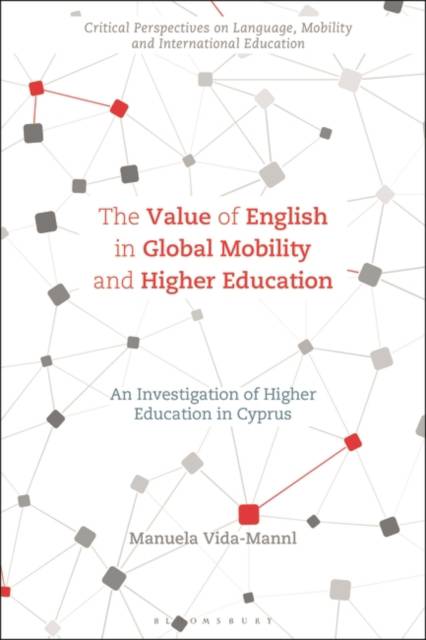
Bedankt voor het vertrouwen het afgelopen jaar! Om jou te bedanken bieden we GRATIS verzending (in België) aan op alles gedurende de hele maand januari.
- Afhalen na 1 uur in een winkel met voorraad
- In januari gratis thuislevering in België
- Ruim aanbod met 7 miljoen producten
Bedankt voor het vertrouwen het afgelopen jaar! Om jou te bedanken bieden we GRATIS verzending (in België) aan op alles gedurende de hele maand januari.
- Afhalen na 1 uur in een winkel met voorraad
- In januari gratis thuislevering in België
- Ruim aanbod met 7 miljoen producten
Zoeken
The Value of English in Global Mobility and Higher Education
An Investigation of Higher Education in Cyprus
Manuela Vida-Mannl
€ 67,95
+ 135 punten
Uitvoering
Omschrijving
This book offers a unique insight into the dynamics of the English language in higher education in Cyprus through the lens of universities situated on both sides of its geopolitical division. It takes an original perspective on 'value' in the context of the sociolinguistics and political economy of English as a global language and as an apparent commodified entity. The problematic issues of value as they apply to language are dealt with from Marxist and Bourdieusean perspectives. The book also offers a helpful critique of the claims of alternative paradigms of English expansion, such as ELF, and their shortcomings in respect of the concept of value.
Manuela Vida-Mannl puts forth a critique of the marketization of English and the complicity of higher education in the reproduction of linguistic hierarchies and social inequalities in Cyprus and, by implication, more generally. She presents a conception of English as a marketable attribute that does not necessarily require competence, which points to the ongoing imbrication of English in the reproduction of global structural and social inequality, as it exposes the myth of class advancement through English.
Building on an extensive study (based on 205 questionnaires and 25 subsequent in-depth ethnographic interviews) and by focusing on the valueof English within the unique context of divided Cyprus, this book uncovers an intriguing perspective on the neoliberal role and significance of the English language in our globalized world.
Manuela Vida-Mannl puts forth a critique of the marketization of English and the complicity of higher education in the reproduction of linguistic hierarchies and social inequalities in Cyprus and, by implication, more generally. She presents a conception of English as a marketable attribute that does not necessarily require competence, which points to the ongoing imbrication of English in the reproduction of global structural and social inequality, as it exposes the myth of class advancement through English.
Building on an extensive study (based on 205 questionnaires and 25 subsequent in-depth ethnographic interviews) and by focusing on the valueof English within the unique context of divided Cyprus, this book uncovers an intriguing perspective on the neoliberal role and significance of the English language in our globalized world.
Specificaties
Betrokkenen
- Auteur(s):
- Uitgeverij:
Inhoud
- Aantal bladzijden:
- 248
- Taal:
- Engels
- Reeks:
Eigenschappen
- Productcode (EAN):
- 9781350231153
- Verschijningsdatum:
- 27/07/2023
- Uitvoering:
- Paperback
- Formaat:
- Trade paperback (VS)
- Afmetingen:
- 156 mm x 234 mm
- Gewicht:
- 353 g

Alleen bij Standaard Boekhandel
+ 135 punten op je klantenkaart van Standaard Boekhandel
Beoordelingen
We publiceren alleen reviews die voldoen aan de voorwaarden voor reviews. Bekijk onze voorwaarden voor reviews.









